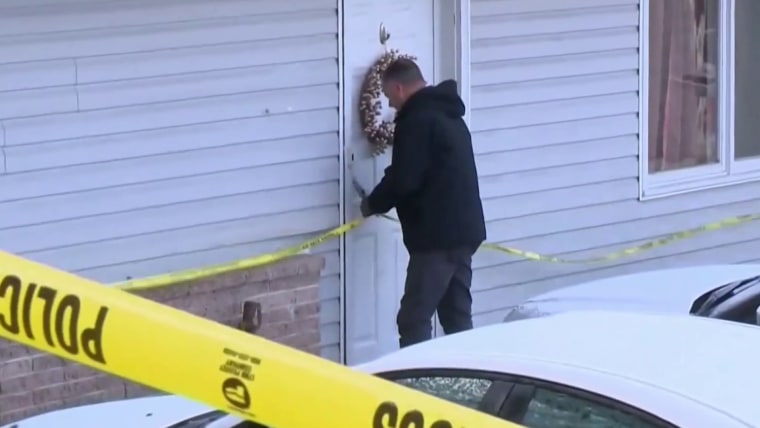Idaho prosecutors disclosed evidence to Bryan Kohberger’s legal team Monday, which they say involves an internal affairs investigation into an officer who was part of the University of Idaho murder case.
The state filed a request for a protective order to keep the investigation out of the public, saying it wished to disclose the investigation as “potential Brady/Giglio material.” It’s unclear what the internal affairs inquiry involved, when it was launched, and how central the officer was to the college murder investigation.
Kohberger is charged with killing four University of Idaho students: Madison Mogen, 21, Kaylee Goncalves, 21, and Xana Kernodle, 20, and Ethan Chapin, 20. They were found at an off-campus residence with multiple stab wounds on the morning of Nov. 13, after they returned home at about 2 a.m. from a night out.
Police announced the arrest of Kohberger, who was a doctoral student at Washington State University, on Dec. 30. Investigators said they found DNA evidence connecting him with the crime, and a search of his apartment uncovered a pillow with a “reddish/brown stain,” a disposable glove and at least a dozen strands of hair.
Prosecutors made Monday’s disclosure under the state’s Brady law obligations, which require a prosecution to disclose evidence that might be beneficial in a suspect’s case. Brady material could include evidence that goes against a witness’s credibility, according to Cornell Law School.
The U.S. Supreme Court ruled in 1985 that a prosecution is obligated to disclose favorable evidence to a person accused of a crime.
Violation of the Brady law obligations could result in a mistrial or an overturned conviction.
Adnan Syed, who was convicted of a Baltimore murder in 2000 and had his charges vacated last year, was released in part due to a Brady violation in his trial. Prosecutors requested a judge vacate his sentence because of new DNA testing and the failure to disclose two other suspects in Hae Min Lee’s murder.
An appellate panel reinstated his charges on Tuesday in a procedural move to allow Lee’s family to attend a new hearing to vacate the sentence.






